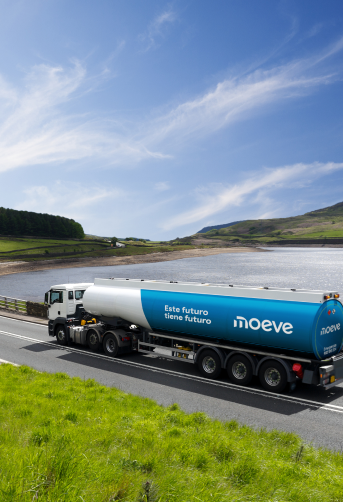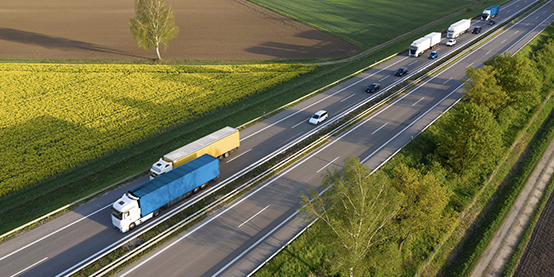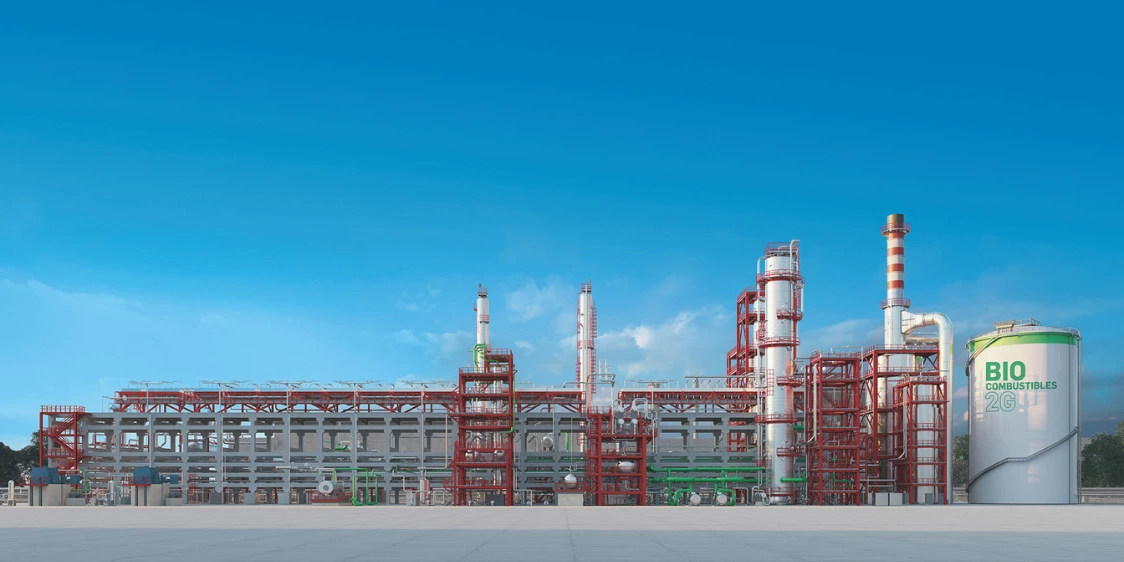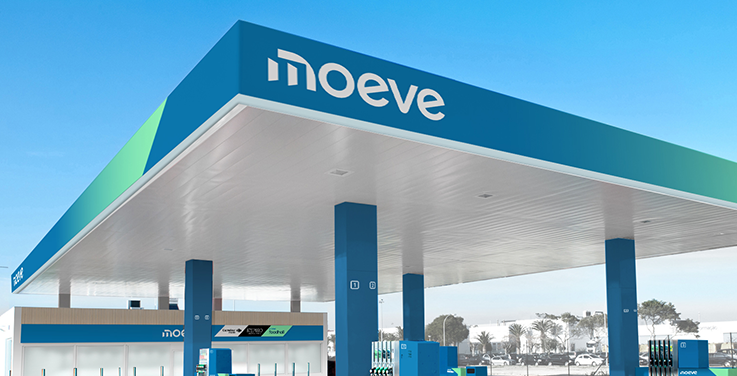
Together we're speeding up the decarbonization of your fleet
Learn about the benefits of HVO 100 renewable diesel firsthand from one of our customers.
The road to the decarbonization of land transportation

A second-generation biofuel obtained through oil and fat hydroprocessing.

It can be used in existing engines without requiring any modifications to them or to fuel storage infrastructure.
It can completely replace traditional diesel but can also be mixed.

It can reduce CO₂ emissions by up to 90% throughout the life cycle, compared to fossil fuels.

It's produced from circular raw materials, such as used cooking oil and agricultural waste, which are given a second life.

Save in maintenance costs and optimize the fuel consumption thanks to fewer deposits forming inside the engine compared to conventional diesel.
With your order for HVO 100 renewable diesel, you can request the Moeve Sustainability Statement (MSS) audited by Control Union, which certifies the traceability of HVO 100 and its greenhouse gas reduction.

Learn about the benefits of HVO 100 renewable diesel firsthand from one of our customers.

Access or download our information dossier and technical sheet.
Effective for sectors that are difficult to electrify.
 Ground transportation
Ground transportationFor both heavy road transport and rail transport.
Find out morearrow_right_alt Sea transport
Sea transportValid for all types of vessels.
Find out morearrow_right_alt Agricultural machinery
Agricultural machineryPerfect for use in agricultural vehicles.
Find out morearrow_right_alt
Check the service stations where you can find them
HVO 100 stands for Hydrotreated Vegetable Oil 100: vegetable oil treated with 100% diluted hydrogen.
From agricultural or livestock waste that has been previously treated to remove impurities. These materials are refined through a process called hydrodeoxygenation, which removes oxygen, sulfur and nitrogen from these renewable raw materials.
HVO 100 renewable diesel can cut CO₂ emissions by up to 90% over its entire life cycle compared to conventional fossil fuels. Moreover, it's produced from organic waste, which promotes the circular economy.
This biofuel is chemically similar to the fossil fuel used in vehicle engines such as trucks and ships.
As a result, it can replace up to 100% of traditional diesel without having to modify current engines.